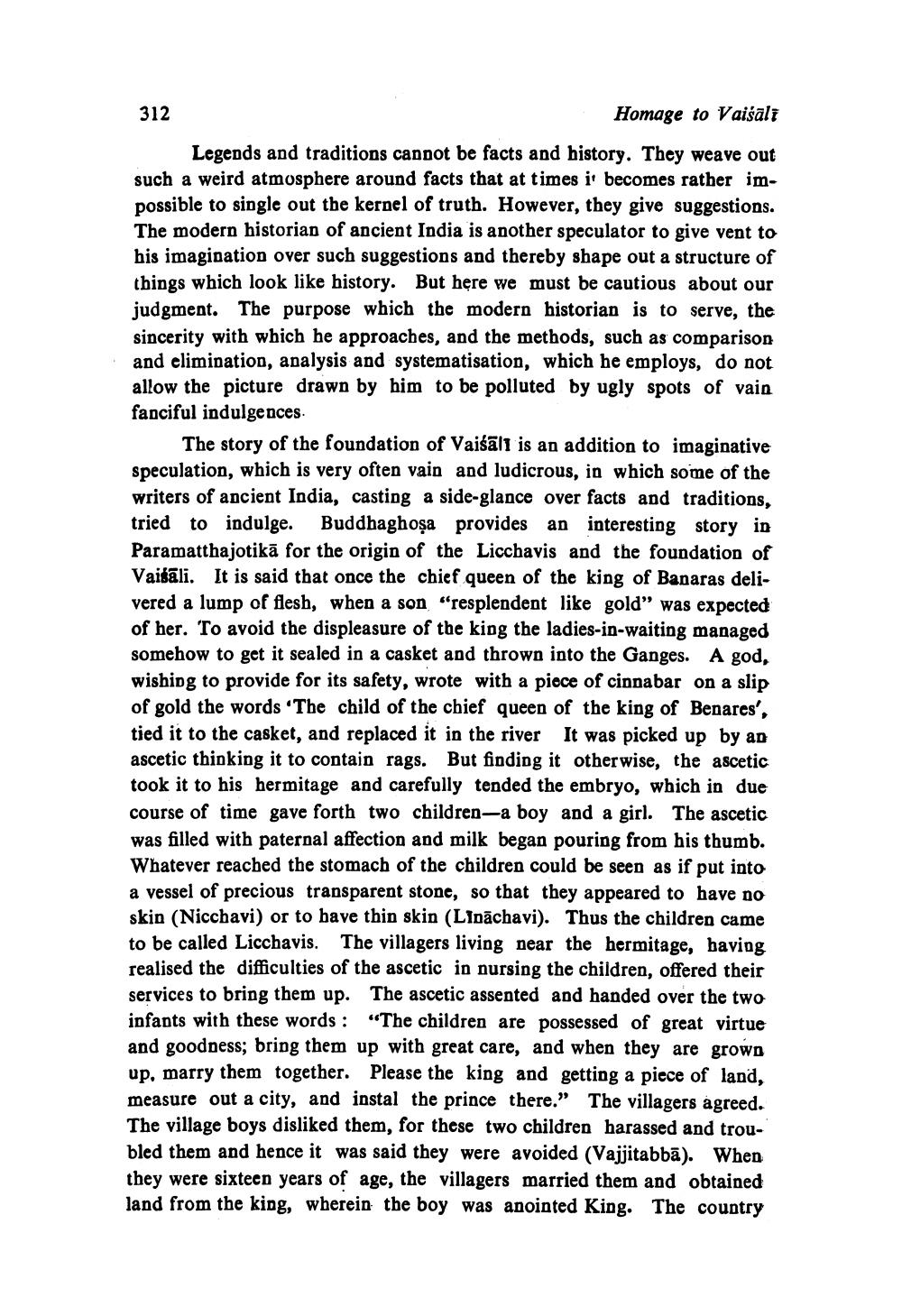________________ 312 Homage to Vaisali Legends and traditions cannot be facts and history. They weave out such a weird atmosphere around facts that at times it becomes rather impossible to single out the kernel of truth. However, they give suggestions. The modern historian of ancient India is another speculator to give vent to his imagination over such suggestions and thereby shape out a structure of things which look like history. But here we must be cautious about our judgment. The purpose which the modern historian is to serve, the sincerity with which he approaches, and the methods, such as comparison and elimination, analysis and systematisation, which he employs, do not allow the picture drawn by him to be polluted by ugly spots of vain fanciful indulgences. The story of the foundation of Vaisali is an addition to imaginative speculation, which is very often vain and ludicrous, in which some of the writers of ancient India, casting a side-glance over facts and traditions, tried to indulge. Buddhaghosa provides an interesting story in Paramatthajotika for the origin of the Licchavis and the foundation of Vaisali. It is said that once the chief queen of the king of Banaras delivered a lump of flesh, when a son "resplendent like gold" was expected of her. To avoid the displeasure of the king the ladies-in-waiting managed somehow to get it sealed in a casket and thrown into the Ganges. A god, wishing to provide for its safety, wrote with a piece of cinnabar on a slip of gold the words 'The child of the chief queen of the king of Benares', tied it to the casket, and replaced it in the river It was picked up by an ascetic thinking it to contain rags. But finding it otherwise, the ascetic took it to his hermitage and carefully tended the embryo, which in due course of time gave forth two children-a boy and a girl. The ascetic was filled with paternal affection and milk began pouring from his thumb. Whatever reached the stomach of the children could be seen as if put into a vessel of precious transparent stone, so that they appeared to have no skin (Nicchavi) or to have thin skin (Linachavi). Thus the children came to be called Licchavis. The villagers living near the hermitage, having realised the difficulties of the ascetic in nursing the children, offered their services to bring them up. The ascetic assented and handed over the two infants with these words: "The children are possessed of great virtue and goodness; bring them up with great care, and when they are grown up, marry them together. Please the king and getting a piece of land, measure out a city, and instal the prince there." The villagers agreed. The village boys disliked them, for these two children harassed and troubled them and hence it was said they were avoided (Vajjitabba). When they were sixteen years of age, the villagers married them and obtained land from the king, wherein the boy was anointed King. The country




